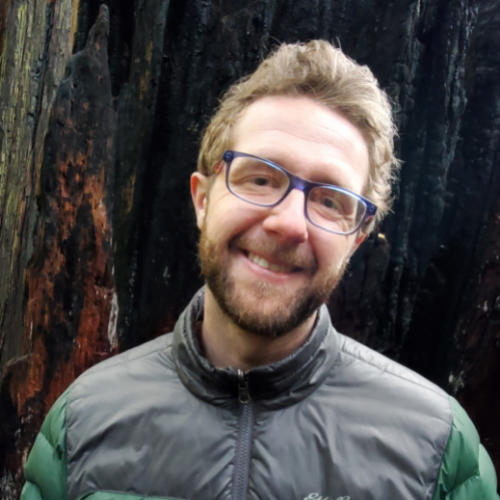Our researchers are a fierce driving force behind therapeutic development and future treatment. Let’s find out what makes them so passionate about KIF1A! Each month, one of our invested members of the KIF1A Research Network will be in the spotlight. Dr. Dylan Verden is next up to share a bit about himself and why he is learning to love all things KIF1A!

Dr. Dylan Verden
Research Engagement Director, KIF1A.ORGDylan joined KIF1A.ORG in 2022 after completing his PhD in Neuroscience at the University of Colorado Medical Campus. Dylan’s research aimed to understand how different cell types in the brain support one another during development and neurodegeneration. In addition to his academic research, Dylan has built a career helping experts explain scientific information to community stakeholders, using intuitive language to enrich science education and policy.
As Research Engagement Director, Dylan acts as a liaison between KIF1A.ORG’s many stakeholders. His goal is to bridge communication between KAND patients and its academic, clinical, and industrial networks to facilitate empathy-driven research and clinical outcomes. Dylan’s passion is based in listening to community needs and finding common language that empowers informed decision-making.
If you could have any superpower, what would it be and why?
Teleportation! I have loved ones all across the world, and I would cherish the opportunity to meet collaborators and see nature without having to worry about time, gas, or airport security.
When did you know you wanted to be a scientist? Why were you drawn to this field?
I grew up among many neurodiverse individuals and was initially drawn to psychology because I wanted to understand and bridge perspective gaps. In high school, I had the privilege of reading evolutionary biology articles in depth, which was a formative experience in understanding scientific perspectives. Taking classes and research positions in neuroscience offered a synthesis of these passions – the brain is such a contextual organ that there is always more to learn, and it’s fascinating to study the part of me that studies things!
What do you love most about your job?
I love learning about subjects from so many different perspectives. Researchers, clinicians, and our KAND community bring such a humbling swathe of expertise to our conversations that there’s always something new to learn.
What is the most challenging aspect of your job?
KAND research is advancing at so many scales of scientific and clinical investigation – integrating all of these data and collaborators is a welcome challenge that keeps my head on a swivel!
What development are you most excited about in terms of KIF1A research?
What excites me most is the huge steps being made to tackle KIF1A and KAND research using diverse model systems. I have worked in labs that use cultured cells, frogs, zebrafish, macaques, rats, and mice, and I have a profound appreciation for how each offers unique insights into the brain and behavior. Seeing the Research Network’s wide net of experimental paradigms is incredibly encouraging.
I couldn’t get through a day at work without:
A walk outside to process new information, no matter the weather.
I am most motivated by:
Helping people find common language to best represent their needs and rally around shared objectives.
When you are not working, what do you like to do?
I love hiking, poi dancing, and running tabletop games for my friends.
